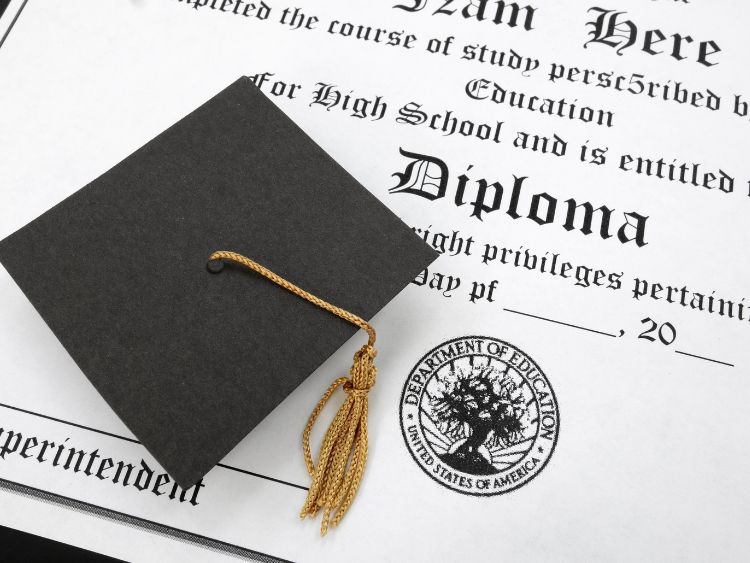In today’s fast-paced world, the allure of quick success often leads people down dubious paths, and the realm of academic achievements is no exception. The phenomenon of fake diplomas, a pressing issue that undermines the value of genuine educational accomplishments, has become increasingly prevalent. This article delves into the murky waters of counterfeit academic credentials, exploring their impact, the reasons behind their popularity, and measures to combat this growing concern.
What Drives the Demand for Fake Diplomas?
- Instant Gratification: In our society’s race for success, many individuals seek the fastest route to professional advancement, often bypassing the hard work and time required for legitimate academic pursuits.
- Pressure and Expectations: The societal and familial pressure to achieve can push some individuals towards the deceptive solution of fake diplomas.
- Economic Factors: In tough economic times, the desperation to secure a job or a promotion can lead individuals to resort to counterfeit qualifications.
The Impact of Fake Diplomas
- Undermining Educational Systems: Fake diplomas devalue the hard work and dedication of legitimate graduates.
- Risk to Public Safety: In fields like healthcare or engineering, unqualified individuals holding fake diplomas can pose serious risks to public safety.
- Economic Implications: The proliferation of unqualified professionals can lead to economic inefficiencies and lost opportunities for qualified individuals.
The Fake Diploma Industry: A Closer Look
The fake diploma industry operates in the shadows, often leveraging the anonymity of the internet to sell counterfeit degrees. It’s a multimillion-dollar business that exploits the vulnerabilities of individuals and organizations alike.
How Do Fake Diploma Mills Work?
- Online Presence: Many of these operations have sophisticated websites, offering fake degrees from non-existent or real universities.
- Customization Options: Buyers can often customize their fake diplomas, choosing the degree, major, and even the grade point average.
- Marketing Tactics: These mills use aggressive marketing strategies, targeting individuals searching for quick academic solutions.
Strategies to Combat Fake Diplomas
- Enhanced Verification Processes: Institutions and employers should invest in robust verification systems to check the authenticity of academic credentials.
- Public Awareness Campaigns: Educating the public about the risks and legal implications of using fake diplomas is crucial.
- International Cooperation: Since many diploma mills operate across borders, international cooperation is vital in cracking down on these operations.
The Legal Landscape
The legality of buying, selling, or using a fake diploma varies from country to country. In some places, it’s a criminal offense, while in others, the laws are more lenient. However, the moral and ethical implications remain universally questionable.
Ethical Considerations
- Fairness and Integrity: Using a fake diploma undermines the principles of fairness and integrity in professional and academic settings.
- Long-term Consequences: Individuals using fake diplomas risk not only legal repercussions but also long-lasting damage to their reputation and career.
Personal Stories: The Human Aspect
To truly understand the impact of fake diplomas, consider the personal stories of those affected. From the disillusioned employer to the deceived colleague, the ripple effects of this issue touch many lives.
The Role of Technology in Detection
Advancements in technology have made it easier to detect fake diplomas. From blockchain verification to sophisticated digital databases, tools are available to authenticate academic credentials accurately.
Frequently Asked Questions
- What motivates individuals to buy fake diplomas?
- A mix of societal pressure, economic factors, and the desire for quick success drives individuals towards fake diplomas.
- How can employers verify the authenticity of academic credentials?
- Employers can use verification services, check directly with the issuing institutions, and leverage technology like digital databases and blockchain for verification.
- What are the risks of using a fake diploma?
- Beyond legal risks, using a fake diploma can lead to job loss, reputational damage, and undermines professional integrity.
Conclusion
The issue of fake diplomas is more than just a legal or ethical dilemma; it’s a societal concern that affects the credibility of our educational institutions and the safety of our communities. As we navigate this complex issue, it’s essential to foster a culture of honesty and integrity, ensuring that the value of true academic achievement is upheld.



